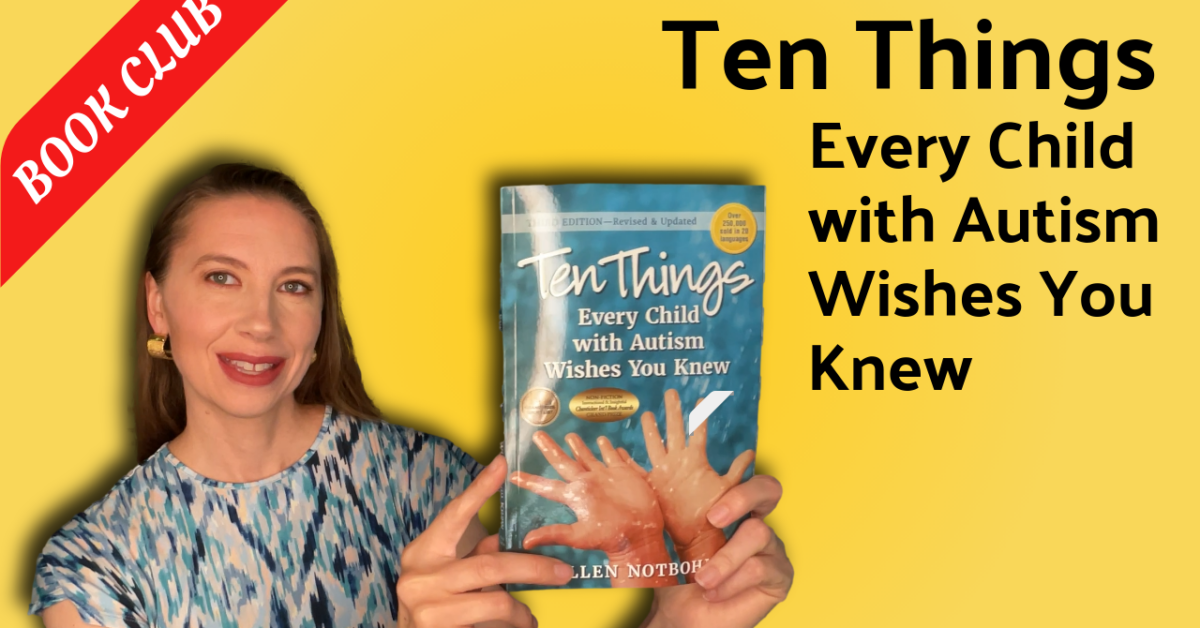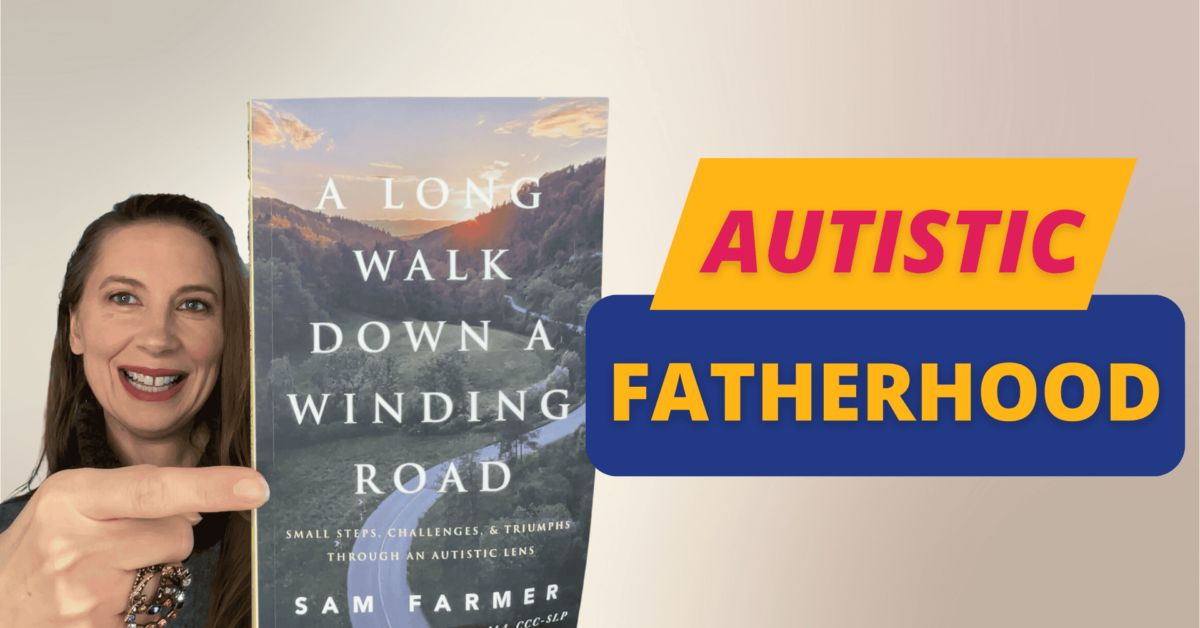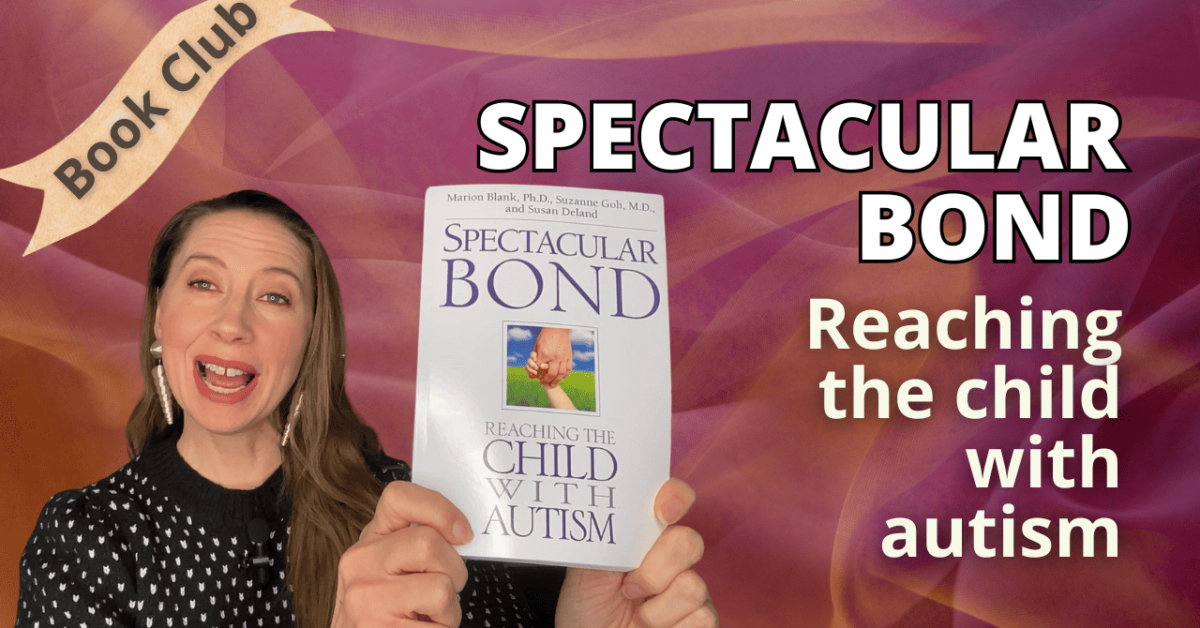We’re going to do a super high-level summary of the book Ten Things Every Child with Autism Wishes You Knew.
Importance of Words
This book is written by a woman who has a child with autism and she has a very interesting introductory chapter. She has a quote here:
“Throughout the book, you’ll be asked to contemplate how the language of autism shapes your perspective. It will help you to view autism from angles you may not yet have considered. There are also a few things you won’t see.”
She goes on to say how she does not capitalize the word autism. She also doesn’t use words like “suffer, obsess, perfect”. And she also says how she does not use the word “normal” in this book at all. So it’s good to know that her perspective in writing this book is not about making your child with autism wrong in any way.
Children with Autism are Intelligent
There’s a fantastic quote in this book:
“The assumption that a child who can’t communicate has nothing to say is as patently ridiculous as assuming an adult without a car has nowhere to go”.
This is definitely a sentiment that is growing more and more in the autism community. There are more ways to use technology to improve communication. So whereas maybe 50 years ago someone who was non-speaking could be written off very easily, nowadays it’s getting to be a bit more difficult, although people try to do it all the time. But with the iPad and different communication devices and a technique called Spelling to Communicate, that’s where the intelligence of someone who is not speaking or is not reliably speaking can really communicate. And then you don’t question their intelligence.
Here’s another quote from chapter one, and it’s written in the sense of a child speaking to you.
“I’m a child learning and growing. Neither you nor I yet know what I may be capable of. If you think of me as just one thing, you run the danger of setting up an expectation that may be too low. And if I get a sense that you don’t think I can do it, my response will be, ‘Why try?'”
Why try? I know as parents we don’t want that for our child. We love our children with autism. We want to help them grow to their biggest potential and really start to enjoy life and be independent. So we certainly wouldn’t want our children to feel, why try?
How Children with Autism Communicate
Here’s a quote from chapter five. Again, written from the perspective of a child speaking directly to you.
“It’s hard for me to tell you what I need when I don’t have a way to describe my thoughts and feelings. I may be hungry, frustrated, scared, or confused, but right now I can’t find those words. Be alert for body language, withdrawal, anxiety, or other signs that something is wrong. They’re there. Or when I can’t find the words I need. I may recite words or whole scripts I have memorized from the movies, videos or books, or things other people say. Sometimes it makes me sound older than I am. And I may not completely understand all the words and meanings. I just know that it’s a way I can answer when I’m expected to, but can’t in a regular way.”
There’s so many different ways that our children are communicating with us through behaviors, and it can get really frustrating, right? Because sometimes those behaviors lead to meltdowns, and those are overwhelming for both the child and the parent. But there’s so much richness in communication with a person with autism. They are communicating. You just have to find and observe and understand how they’re communicating.
What do Children with Autism Expect from their Parents
And the last quote that I’ll leave you with is:
“When I hear things like ‘If you were just’ and ‘Why can’t you?’, I feel your disappointment in me already. And it makes me wonder, did you do every last thing your parents and teachers expected of you? I bet you didn’t, and I bet you wouldn’t like being reminded of it all the time. I didn’t choose to have autism. Remember. That it’s happening to me, not you. I think a lot about growing up. Things I want to be, things I want to do. It scares me that without your help, I may never do these things. I need you to be my rock, my defender, my guide. Can you love me for who I am without any if or but? Then you will see how far I can go.”
That’s an important passage to just reflect on. And as a parent, it’s so easy to look at classmates and to see that gap, and then all you focus on is that gap, and then the gap gets larger and larger, and then your child feels it and they might even end up not trying anymore.
A Great Resource
I think this is a great book to have on hand at home. When you’re having one of those kind of tough days and you’re irritated and frustrated, you can just pick it up, open to any particular section, and you’ll be inspired. You’ll be able to ground yourself and think about the situation from a much larger perspective. Because in the moment, things can get really stressful. But when you think about long term and you think about your child and how you want to inspire them and have them grow, that’s where you want to be. That’s the parent that I definitely know you are.
So I certainly would recommend this book. It’s a great resource to have at home.





